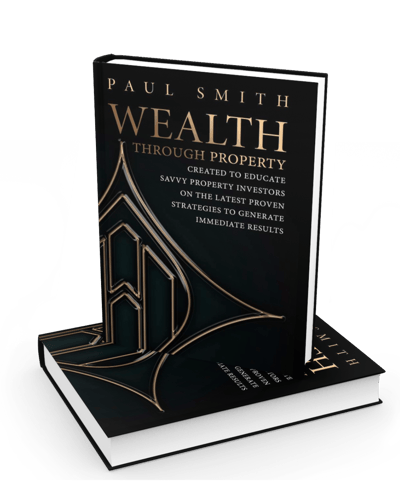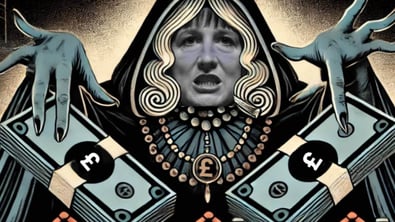The Bank of England has said that the rising interest rates in the UK will not lead to a housing market crash.
Figures released by Halifax this week showed house prices dipped 0.1% from the previous month. This was the first time prices have fallen in a year.
What will the interest rate rise mean for the housing market? This blog post explains.
What are interest rates?
The interest rate is the cost of borrowing or the reward for saving.
Therefore, the higher the percentage, the more is needed to be paid back for a loan of a given size.
On the other hand, as the saving rate rises, more will be paid into your account for a given-sized deposit.
What is monetary policy?
To understand fully how interest rates work and the role of the Bank of England, we need to know monetary policy.
Monetary policy is the action that a country’s central bank or government can take to influence how much money is in the economy and how much it costs to borrow.
The Bank of England (the UK’s central bank) has two main monetary policy tools.
Firstly, they can set the interest rate to determine how much banks are charged to borrow from the Bank of England. This is known as the Bank Rate or Base Rate.
Secondly, the Bank of England can buy bonds to lower the interest rates on savings and loans through quantitative easing.
Monetary policy is the main tool used to control the rate of inflation – how much prices are rising.
The Government has an inflation target of 2%. The current rate at 9.4% is therefore too high, hence the interest rates rise.
Monetary policy can also be used to support the Government’s other economic aims for growth and employment. In the short term it can be needed to balance the target of low inflation whilst supporting economic growth and jobs.
What is the link between the interest rate and the housing market?
In Britain, two-thirds of households own the house they live in and half of these are still paying off their mortgages. The remaining third of householders are renters, which is split evenly between private and social renters.
The housing market is closely linked to consumer spending. When house prices go up, homeowners become better off and feel more confident. Some people will borrow more against the value of their home, either to spend on goods and services, renovate their house, supplement their pension, or pay off other debt.
“There are several channels in which housing is relevant for the transmission of monetary policy impulses such as changes in official interest rates or in bond market yields through quantitative easing. First, the level of short-term and long-term interest rates influence mortgage credit rates. So, it makes purchasing a home more (or less) affordable. Thus, demand for housing – and therefore employment, aggregate demand and ultimately consumer price inflation – rises (or falls). Mortgage loans make up 77% of euro area households’ total borrowing (ECB, 2021).
“Second, the value of an asset is influenced by the net present value of the stream of income from this asset. In the case of housing, this income can either be rental income or the implicit income from using the house (in the case of owner-occupied housing). If the discount rate falls (as implied by lower official interest rates), the net present value of a home rises. Looser monetary policy thus raises real estate prices.
“This rise in housing prices can affect household consumption in various ways. First, it can entail that households feel richer and can take out an additional mortgage on their house, to finance other expenditures. In this case, we observe a positive wealth effect. Conversely, rising house prices can also imply that for instance, young households need to spend a higher fraction of their disposable income on housing, leaving less for other consumption. In this case, there would be a negative income effect from rising house prices. Whether the positive or negative wealth income effects prevail, depends on the fraction of homeowners versus tenants and demographic factors. If, for instance, homeowners benefiting from wealth increases have a lower prosperity to consume than those just buying a home, the net effect on aggregate consumption will likely be negative.
“Similarly, rising rents will benefit landlords, while tenants will have less of their income left for other consumption. Assuming that renters are wealthier and have a lower propensity to consume than tenants, then a rise in house prices and rents will on aggregate dampen consumption for non-housing goods. A very similar argument applies to households which take out a loan to finance their homes: higher house prices imply the need for a bigger loan, implying lower disposable household income after loan servicing.”
What is currently happening to interest rates?
The Bank of England this week raised the base rate to 1.75%.
He said: “Wholesale gas future prices for the end of this year have nearly doubled since May. That’s overwhelmingly a consequence of Russia’s restriction of gas supplies to Europe and the risk of future cuts.
“Domestic inflationary pressures have also remained strong. Firms generally report that they expect to increase their selling prices markedly, reflecting the sharp rise in their cost.”
What will the rise in interest rate mean for property?
He told Bloomberg TV that the interest rate rises are designed to curb demand in the economy, and that is “partially working through the housing market, which we would expect to cool. We think there is some resilience there, and we’re not going to see the dramatic downturns we’ve seen in the past.”
“Growth will calm down as the cost-of-living squeeze gradually takes its toll on demand.
“The other key consideration is supply, which has had the single bigger impact on house prices this year.
“As it rises, the double-digit house price growth that has taken most people by surprise during the pandemic will return to earth. We forecast UK prices will grow by 5% this year.”
What will happen to the Buy to Let market during this period of high inflation?
The accessibility to mortgages influenced by high-interest rates is good news for buy-to-let landlords.
Aaron Marshall of Keyrenter said: “When recessions happen, housing is often affected, and when people can’t afford to buy homes they rent.
“If you have a property that’s well run, you’re going to keep – and that rental income may turn out to be your bulwark in an economic storm. You may find that with a business, you have to lower prices and profits and sales may be down… but if you have reliable tenants you’ve got a steady income to protect you and prop you up in a recession.”
What will happen to UK serviced accommodation during the period of high inflation?
With income being squeezed, there may be a shift from international holidays to UK-based serviced accommodation.
This has been the case during previous recessions.
During 2007-201, Britons holidaying abroad went down 18%. In the same period, staycation breaks were up 5.6% with total tourism revenue up 12.6%.
What will happen to property prices during high inflation?
The high inflation is likely to result in less buying competition.
It means that fewer people have the funds to buy a first home or upgrade to a larger one. This means there is more choice of landing a home at market value or less and gives more time to find a property you desire.
Conclusion
The current interest rate and inflation situation creates opportunities for property investors.
Investing in property now can create dividends in the long run.
While the high inflation can create a shift to greater demand in the rental market to accommodate people who are unable to get a mortgage themselves.
Wealth Through Property is the UK’s premium property investment course. Set over two days the course will teach you about the latest strategies and what is working, educate you on the different methods to get your portfolio started and have greater diligence over your finances and manage yourself at a personal level.
To find out more information and to start or take the next steps on your property journey, call us on 01302 897131 or email office@touchstoneeducation.co.uk.












